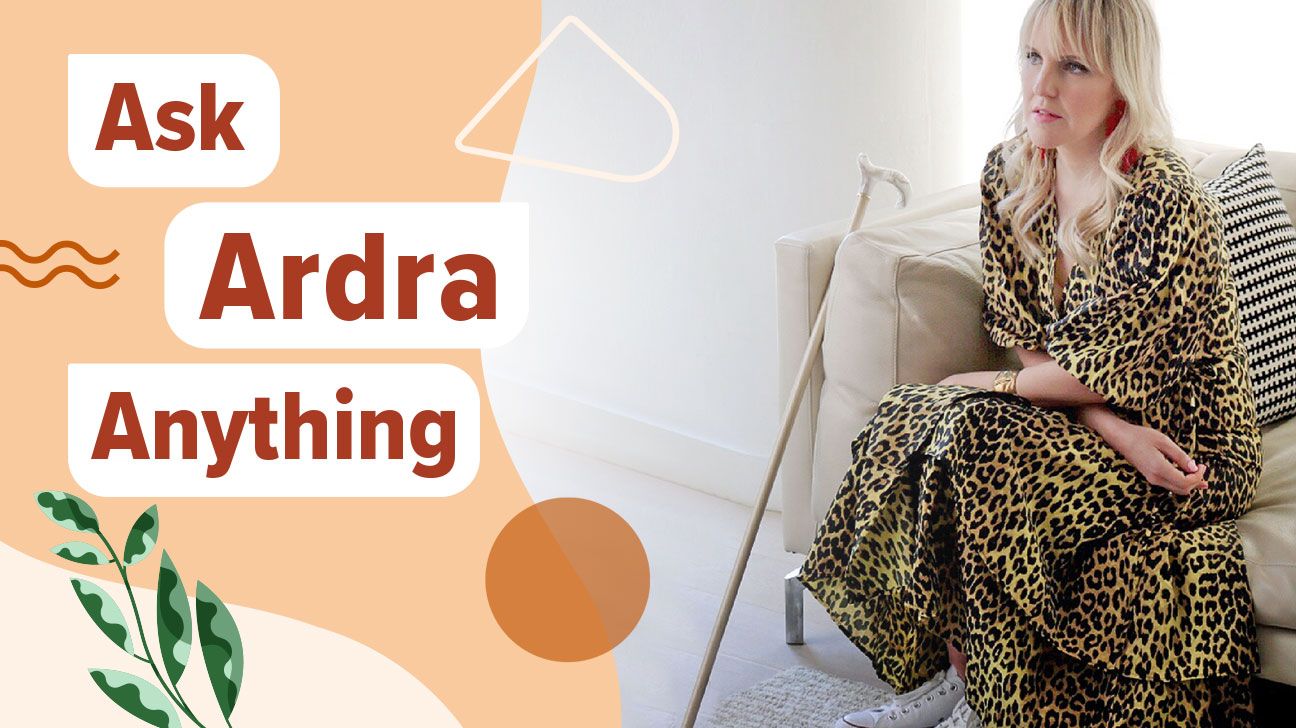Ask Ardra Anything: How Do You Deal with Discrimination from Friends?
December 01, 2021
Content created for the Bezzy community and sponsored by our partners. Learn More

Ask Ardra
Welcome to Ask Ardra Anything, an advice column about life with multiple sclerosis from blogger Ardra Shephard. Ardra has lived with MS for 2 decades and is the creator of the award-winning blog Tripping on Air, as well as the hashtag #babeswithmobilityaids. Got a question for Ardra? Reach out on Instagram @ms_trippingonair.
Dear Ardra,
Can you please tell me how you’ve dealt with discrimination from friends [when you have MS]? I never know quite what to do (I’m always surprised, and frozen in the moment), and yet it is absolutely not in my nature to call something out… until I have had time to process what has transpired.
— Carly
While I don’t know the details of how Carly’s friends dissed her because of her multiple sclerosis (MS), I have a few guesses as to what she might have heard:
- “You’d be better if you just tried this supplement or stopped eating that food.”
- “Everyone gets tired.”
- “It’s all in your head.”
- “Just think positively” or “You’re too negative.”
- “We didn’t invite you because you’re always tired or cancelling.”
- “Don’t be ‘all about MS.'”
- “But, you don’t look sick.”
- “You’re too young for a mobility aid.”
- “Everything happens for a reason.”
- “Are you sure you even have MS?”
Nothing hurts quite so much as when you face misunderstanding and microaggressions from the people who are supposed to love you the most. MS is a complicated condition with a steep learning curve for everyone involved — including your friends and family.
If you feel like MS is testing your relationships, there are things you can do to encourage better interactions and to protect your sense of well-being.


Consider the benefit of the doubt
Just as it took you some time to adjust to life with MS (and 20 years later I’m still figuring it out), it will also take your loved ones time to adapt to your diagnosis.
Intentions matter and hurtful comments can feel less hurtful when we understand the motivation behind them.
That said, offering people the benefit of the doubt should be confined to a temporary grace period. Once you’ve communicated how hurtful someone’s words or actions feel, repeat offenders should lose this privilege.
Honor your feelings
Even when comments or behaviors come from a good place, that doesn’t mean they’re not damaging.
Your feelings are valid. You don’t always have to put the comfort of the person who “means well” ahead of your own.
Communicate assertively
Some of the microaggressions I hear about MS are so common that I find it helpful to have a prepared response.
Instead of turning purple and screaming, “KALE DOESN’T CURE MS” at Thanksgiving dinner, I can politely, but assertively say to Aunt Brenda, “Actually, my doctor and I have a plan that I’m comfortable with. Please pass the Chardonnay.”
Don’t assume
Your loved ones may make uninformed assumptions about what you can and can’t do.
This can leave you feeling left out and uninvited, or like they “don’t get it,” when you’re asked to do too much.
Understand that communication goes both ways. I tell people I prefer to make my own decisions. If you’re worried about feeling left out, it can be helpful to say, “I know I sometimes bail at the last minute. I’m not unreliable, my disease is. Please keep inviting me, even if I can’t always make it.”
Help educate
Whether it’s to your employer, your insurance company, or even your doctor, having to explain and convince someone of your limitations and of the reality of your illness is a particularly demoralizing experience.
When doubt and uncertainty about your MS come from your loved ones, it can be devastating. Your friends and family may be in denial or they may need more education.
Assuming the relationship is worth it (because having to prove yourself is exhausting), offer to answer questions as you are comfortable.
You don’t have to give a TED Talk about neurology. You can provide reputable online sources and encourage your loved ones to do some homework.
When someone says, “Are you sure you have MS?” try saying, “MS is a complex disease, and no two cases are alike. I’d be happy to recommend some resources if you’d like to learn more.”
Consider counseling
If someone especially close to you is having trouble understanding your diagnosis or how it affects you, consider inviting them to your next doctor’s appointment. A peek at your MRI and a word from someone in a lab coat might help them understand the seriousness of what you’re living with.
If you’re still feeling misunderstood, consider speaking with a therapist, either together or separately.
Find new friends
You don’t have to ditch your existing crew, but if you have MS, the value of connecting with others who also have MS is immeasurable.
Some of the deepest and most meaningful relationships form between people who share a common struggle. If you want to feel seen, find a friend with MS.
Reassess
Friendships change, evolve, and come and go throughout our lives. It’s OK to say, “thank you, next” if a friendship no longer works for you, or worse, has become toxic.
MS should never mean having to settle for unhealthy alliances.
The takeaway
Your value isn’t attached to your health. Like everyone, you deserve quality, fulfilling relationships.
Your time is precious, so surround yourself with people who respect the impact MS has on your life. With a little communication, your relationships don’t have to be a casualty of MS.
Fact checked on December 01, 2021


Like the story? React, bookmark, or share below:
Have thoughts or suggestions about this article? Email us at article-feedback@bezzy.com.
About the author